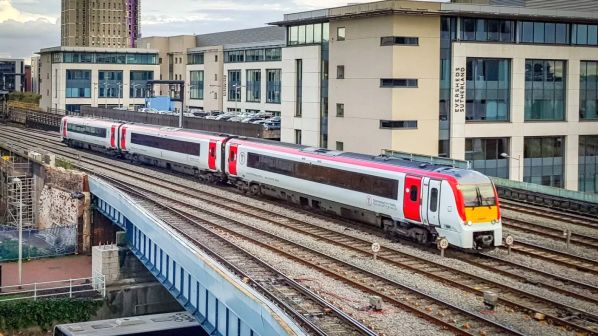Transport currently accounts for 17% of Wales’ carbon emissions but the Welsh Government has committed to setting new five-year priorities to tackle carbon emissions as it looks to meet its decarbonisation targets.
Published as the coronavirus pandemic continues to affect everyday life, the New Path draft strategy recognises that a reduction in commuting and a rise in home working is likely to continue.
The Welsh government previously outlined its long-term ambition for 30% of the workforce to work from home or remotely, achieved by giving people more choice over how and where they work. The strategy recognises that more local services and more active travel can mean fewer people needing to use their cars daily.
The strategy sets out four long-term ambitions for the Welsh transport system, delivered through a set of five-year priorities. It also contains nine ‘mini-plans’ for individual modes and sectors, including active travel; rail; bus; roads; community transport schemes; taxis and private hire vehicles; freight and logistics; and ports, maritime transport and aviation.
Rail priorities
While most rail decisions are not devolved to the Welsh government, the strategy sets out a number of ambitions to improve rail.
The government recently took over direct responsibility for the Core Valley Lines in Wales, with services delivered by Transport for Wales. The strategy highlights that it will continue to make the case for full devolution of rail while continuing to work closely with the British government.
New Path includes a number of targets for 2040, including:
- removing barriers that prevent passengers from fully utilising services, including improving accessibility, addressing affordability and providing training for staff to ensure that everyone feels welcome
- making seamless door-to-door journeys easier and more sustainable by better integrating rail with bus and active travel modes
- replacing diesel traction with new technology that emits fewer emissions
- improving the energy performance of stations and other infrastructure
- moving freight from road to rail
- increasing rail services
- introducing a wide range of digital innovations to make rail travel easier, including integrated ticketing and improved real-time information for passengers, and
- improving language services to allow Welsh speakers to use rail in their language of choice.
In order to achieve this, the plan sets out a number of priorities for the next five years, including:
- developing metro systems to better integrate other public transport modes with rail
- working with British infrastructure manager Network Rail (NR) and the British government to decarbonise the Welsh rail network, and
- pressing for a stronger voice in rail investment decisions that affect Wales, and ultimately for the full devolution of rail services and infrastructure in Wales and a fair funding settlement.
“We’ve reached the point where travelling by car is seen as the easiest way to get around for most people,” says Mr Lee Waters, deputy minister for economy and transport. “If we are to succeed in tackling climate change that has to change, but it’s going to take a big effort to encourage people to consider alternatives. We will only succeed in persuading people to alter their habits if we make the alternative to using the car more attractive. And that’s the task our new transport strategy sets itself.”
“Our public transport system is one of the most important national assets we have,” says minister for economy, transport and North Wales, Mr Ken Skates. “Our new strategy - Llwybr Newydd - sets out a commitment to a major reduction in transport emissions so we are all playing our part in the addressing the crisis we face. It shows how promoting social justice and tackling the climate emergency will be at the heart of our work, particularly in the context of a pandemic which is fundamentally changing the way we live, work and play.”
A consultation on the plan was launched on November 17, and will run until January 25 2021.

